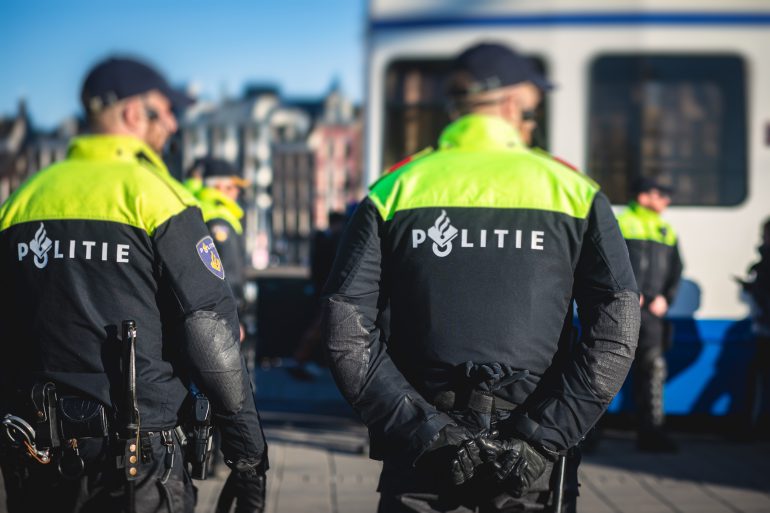House robbed or bike stolen? Don’t expect a calvary of blue-uniformed police officers in screeching car wheels and blaring sirens to come to the rescue. According to a report released to the national broadcasting services NOS in early January, Dutch national police forces are alarmingly understaffed. This year alone, the current police force of 47,000 employees needs an additional 1,400 people just to carry out the already existing workload. That might not seem like a lot, but especially with extra police manpower required to enforce Covid regulations and maintain public law and order, it is.
With the Dutch government’s anti-Covid regulations requiring the horeca (the hotel, restaurant and catering sector) and the cultural sector to remain closed, local police authorities are having a tough time of enforcing the government’s unpopular measures. On 19 January more than 70 cultural venues throughout the country opened their doors to the public in protest, stating they were “essential businesses” and deserved to be open. Amsterdam’s Concertgebouw turned into a hair salon, with clients getting haircuts on the podium while in the background a full orchestra played to an audience. In Zaandam, the Zaanse Museum, which features local artists and is surrounded by windmills characteristic of Zaandam, transformed into an alternative location for Yoga Studio De Weer, where owner, Lizette ten Kate, had her students in downward-facing dog poses and their arms and legs in windmill postures. The police of Amsterdam and Zaandam were at their wit’s end. With not enough manpower, city governments and police authorities embarrassedly watched, and could only issue a warning to museum and concert hall directors.
Besides enforcing Covid laws, local police forces are also expected to maintain law and order at demonstrations and protest rallies. Especially in The Hague, Amsterdam and Rotterdam, where the frustration of protestors towards the current government’s Covid measures has repeatedly conveyed by stones and fireworks thrown at law officers. It is no coincidence that these three cities are even more in need of police officers than other municipalities in the Netherlands.
However, according to the national police report, the pandemic is not the only reason for the lack of staff. In recent years, the Dutch government has had to budget additional funding for the national police force to fight organized crime and address cybercrime, which is becoming ever more rampant. The budget for 2022 alone is a staggering 6.4 billion euros, one billion more than six years ago.
However, the lack of law officers is not only due to the pandemic and new tasks required from the police. The personnel problem is also general labour problem in the whole western world, as the Baby Boom generation (born between 1946 and 1964) is starting to retire and leave the labour force. According to Pew Research Center, in the US, for example, last year approximately 28.6 million Baby Boomers left the labour market for retirement, which is 3.2 million more than a year earlier. In the Netherlands, 1.9 million Baby Boomers are expected to retire in the coming years, with only 1.6 million people available to fill their shoes. That will only add to the already existing shortage on the labour market. For the second quarter of 2021, Statistics Netherlands reported that for every 130 job vacancies there were only 100 unemployed. This was a drastic increase from a year earlier, when the pandemic broke out, and the number of unemployed rose drastically.
For the national police, however, help is on the way. With 4,500 officers annually being trained for the next three years, the Dutch national police is hopeful to solve its personnel problem. In 2025, all ranks of the police force are expected to be fully staffed again; the number of new trainees will then be reduced to 4,000. Hence, the shortage of law officers is expected to be only a temporary issue. However, until then, don’t expect the police to fight petty crimes and have time for friendly chit-chat in the street.
Written by Benjamin B. Roberts
